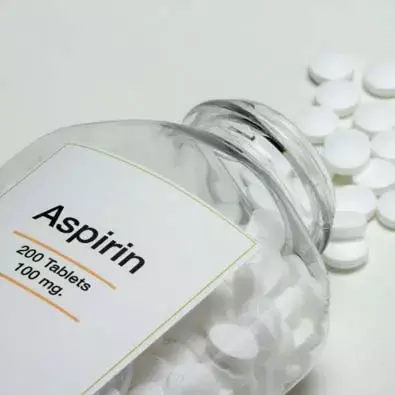- Home
- Medical news & Guidelines
- Anesthesiology
- Cardiology and CTVS
- Critical Care
- Dentistry
- Dermatology
- Diabetes and Endocrinology
- ENT
- Gastroenterology
- Medicine
- Nephrology
- Neurology
- Obstretics-Gynaecology
- Oncology
- Ophthalmology
- Orthopaedics
- Pediatrics-Neonatology
- Psychiatry
- Pulmonology
- Radiology
- Surgery
- Urology
- Laboratory Medicine
- Diet
- Nursing
- Paramedical
- Physiotherapy
- Health news
- Fact Check
- Bone Health Fact Check
- Brain Health Fact Check
- Cancer Related Fact Check
- Child Care Fact Check
- Dental and oral health fact check
- Diabetes and metabolic health fact check
- Diet and Nutrition Fact Check
- Eye and ENT Care Fact Check
- Fitness fact check
- Gut health fact check
- Heart health fact check
- Kidney health fact check
- Medical education fact check
- Men's health fact check
- Respiratory fact check
- Skin and hair care fact check
- Vaccine and Immunization fact check
- Women's health fact check
- AYUSH
- State News
- Andaman and Nicobar Islands
- Andhra Pradesh
- Arunachal Pradesh
- Assam
- Bihar
- Chandigarh
- Chattisgarh
- Dadra and Nagar Haveli
- Daman and Diu
- Delhi
- Goa
- Gujarat
- Haryana
- Himachal Pradesh
- Jammu & Kashmir
- Jharkhand
- Karnataka
- Kerala
- Ladakh
- Lakshadweep
- Madhya Pradesh
- Maharashtra
- Manipur
- Meghalaya
- Mizoram
- Nagaland
- Odisha
- Puducherry
- Punjab
- Rajasthan
- Sikkim
- Tamil Nadu
- Telangana
- Tripura
- Uttar Pradesh
- Uttrakhand
- West Bengal
- Medical Education
- Industry
Aspirin may prevent major CV events in patients with CKD

Canada: In a recent study done by Johannes F.E. Mann, it was seen that aspirin alone or in conjunction with a polypill may significantly reduce cardiovascular (CV) risk in people with chronic kidney disease (CKD). The findings of this study were published in Nephrology Dialysis Transplantation.
Patients with CKD have a high CV risk. It is debatable if aspirin reduces this risk. As a result, in this study, researchers looked at the CV outcomes of TIPS3 trial participants with CKD.
For this study, The International Polycap Study3 (TIPS3) used a factorial design to assign participants (N = 5713) with and without CKD but with no prior CV illness to aspirin, aspirin + polypill, polypill, or equivalent placebo. At baseline, eGFR was less than 60 mL/min/1.73 m2 in 983 patients randomly assigned to aspirin or placebo (CKD). This study's primary outcome was nonfatal myocardial infarction (MI), nonfatal stroke, or CV mortality. The average duration of follow-up was 4.6 years.
The key findings of this study were as follows:
1. There were 250 primary MACE outcomes in all individuals, 116 on aspirin and 134 on placebo.
2. There were 65 main MACE outcomes in individuals with CKD, 26 in the 502 aspirin participants and 39 in the 481 placebo participants, HR 0.57.
3. Aspirin versus placebo had roughly comparable findings for the secondary endpoint of all-cause mortality, with 312 occurrences in all participants and 82 events in CKD patients.
4. There was no significant interaction between eGFR 60 mL/min and aspirin versus placebo treatment effects.
5. Major and mild bleeding were uncommon and did not differ across groups.
6. When aspirin was coupled with a polypill (containing ramipril, atenolol, hydrochlorothiazide, and simvastatin) and particularly in comparison to a double placebo, the HR for MACE was 0.69, 0.50–0.97 and for all-cause death was 0.80, 0.59–1.08 in all participants; in CKD patients, the HR was 0.37, 0.18–0.75 for MACE and 0.49, 0.29–0.97
In conclusion, in people with chronic renal disease, aspirin may help avoid major adverse cardiovascular events (MACE).
Reference:
Mann, J. F. E., Joseph, P., Gao, P., Pais, P., Xavier, D., Dans, T., Lopez Jaramillo, P., Gamra, H., Tyrwhitt, J., & Yusuf, S. (2022). MO201: Effects of Aspirin in Primary Prevention of Cardiovascular (CV) Disease in People with Chronic Kidney Disease (CKD): Results of the TIPS3 Trial. In Nephrology Dialysis Transplantation (Vol. 37, Issue Supplement_3). Oxford University Press (OUP). https://doi.org/10.1093/ndt/gfac066.103
Neuroscience Masters graduate
Jacinthlyn Sylvia, a Neuroscience Master's graduate from Chennai has worked extensively in deciphering the neurobiology of cognition and motor control in aging. She also has spread-out exposure to Neurosurgery from her Bachelor’s. She is currently involved in active Neuro-Oncology research. She is an upcoming neuroscientist with a fiery passion for writing. Her news cover at Medical Dialogues feature recent discoveries and updates from the healthcare and biomedical research fields. She can be reached at editorial@medicaldialogues.in
Dr Kamal Kant Kohli-MBBS, DTCD- a chest specialist with more than 30 years of practice and a flair for writing clinical articles, Dr Kamal Kant Kohli joined Medical Dialogues as a Chief Editor of Medical News. Besides writing articles, as an editor, he proofreads and verifies all the medical content published on Medical Dialogues including those coming from journals, studies,medical conferences,guidelines etc. Email: drkohli@medicaldialogues.in. Contact no. 011-43720751


